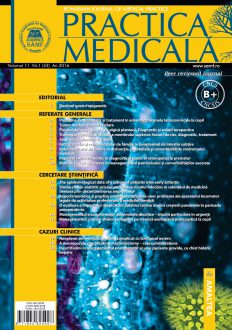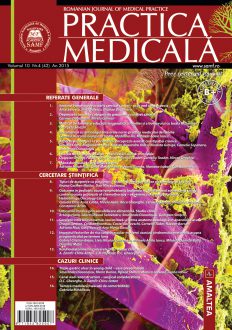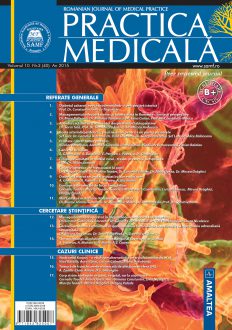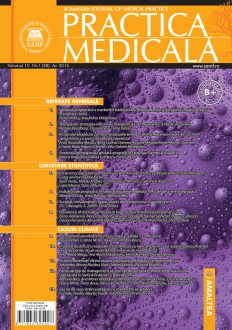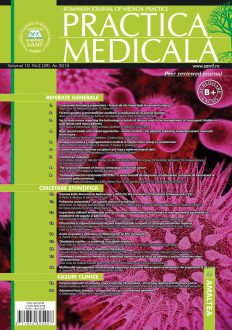SELECT ISSUE
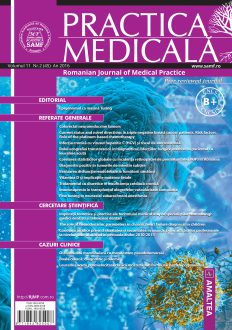
Indexed

| |

|
|
|
| |
|
|
|

|
|
|
|
|
|
|
HIGHLIGHTS
National Awards “Science and Research”
NEW! RJMP has announced the annually National Award for "Science and Research" for the best scientific articles published throughout the year in the official journal.
Read the Recommendations for the Conduct, Reporting, Editing, and Publication of Scholarly work in Medical Journals.
The published medical research literature is a global public good. Medical journal editors have a social responsibility to promote global health by publishing, whenever possible, research that furthers health worldwide.
Current status and novel directions in triple negative breast cancer patients. Risk factors. Role of the platinum-based chemotherapy
Olivia IONESCU, Irina BALESCU and Nicolae BACALBASA
ABSTRACT
Rationale. Breast cancer (BC) has been recognized to be the most common type of cancer in women all over the world. One of the most aggressive subtype of BC is the triple negative breast cancer (TNBC) which
is defined by the absence of estrogen receptor (ER) and progesterone receptor (PR) as well as the lack of overexpression of the human epidermal growth factor 2 (HER 2).
Aim. As the estrogen and progesterone receptors as well as the expression of HER2 are lacking, a targeted therapy with anti-hormone agents and anti-HER2 cannot be utilized, the therapeutic possibilities for TNBC women are limited. The aim of this review is to present the current scientific data as well as the latest research in TNBC with focus on the risk factors as well as the current role of platinum-based chemotherapeutic agents and their future implications in TNBC treatment.
Method. Information about the risk factors associated to TNBC as well as the chemotherapeutic regimens was searched through Pubmed and Medline using controlled vocabulary (e.g. breast cancer) and key words (e.g. neoadjuvant, triple negative, platinum). Systematic reviews, randomized and controlled clinical trials were analyzed. No restrictions regarding date or language were used.
Conclusions. TNBC is a complex and heterogeneous disease, divided into many subtypes and with an aggressive evolution. Premenopausal women and African American women are far more likely to develop
TNBC. More research is required in order to confirm the association between obesity, BMI, parity, use of oral contraceptives, alcohol and cigarette smoking and TNBC. Randomized clinical trials presented at the
San Antonio Symposium suggest that platinum chemotherapy play an important role in the treatment of TNBC, especially early stage TNBC. Tumor-based measures of genomic instability will help to clarify the
optimal use and activity of platinum in TNBC. However, it is clear than more epidemiological studies as well as the discovery of novel therapeutic possibilities are mandatory in order to unravel the complexity of
this BC subtype, hence offering a chance to women diagnosed with TNBC.
Keywords: breast cancer, triple negative, platinum, neoadjuvant
Full text | PDF

